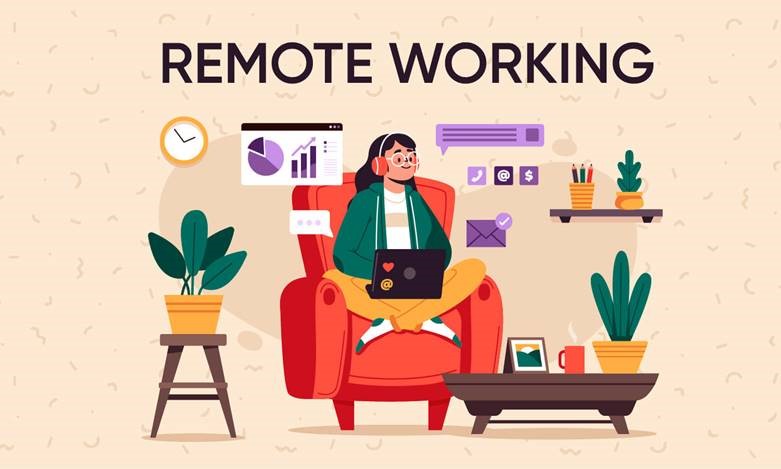By Gerald L. Maatman, Jr., Zach McCormack, and Ryan T. Garippo
Duane Morris Takeaways: On September 24, 2024, in EEOC v. Total Systems Services, LLC, No. 23-CV-01311 (N.D. Ga. Sept. 24, 2024), Judge William Ray II of the U.S District Court for the Northern District of Georgia adopted a report and recommendation from a magistrate judge granting in part and denying in part Total Systems Services, LLC’s (“TSS”) motion for summary judgment on claims of disability discrimination. In an increasingly digital world, this opinion in an EEOC enforcement lawsuit exemplifies some of the risks that employers face when allowing a portion of their workforce to work remotely.
Case Background
Plaintiff Joyce Poulson (“Poulson”) worked as a customer service representative for TSS from 2016-2020. As a customer service representative, Poulson was assigned to take telephone calls from the clients of three different banks related to travel benefits associated with their credit cards. Prior to the COVID-19 pandemic, TSS did not allow its employees to work remotely. In the wake of the pandemic, however, TSS began transitioning as many employees as possible to remote work. Poulson was not selected to be one of the employees to transition to remote work based, in part, on the fact that SunTrust Bank (i.e., one of TSS’ clients for whom she took calls) would not allow it.
In 2020, Poulson was diagnosed as a “pre-diabetic” by her doctor. This condition did not limit her job functions and was adequately controlled by medication. However, when one of Poulson’s other co-workers tested positive for COVID-19, Poulson’s doctor advised that she should self-quarantine (a period of time that was ultimately covered by the Family Medical Leave Act (“FMLA”)). After the period of self-quarantine, Poulson requested to continue with remote work based on her doctor’s recommendation that she was at “high-risk of suffering severe effects.” Id. at 7.
TSS explained to Poulson that it would consider her for a remote position when the next round of remote positions became available. TSS also asked Poulson to demonstrate that she had adequate internet speed available at home to demonstrate that she could do her job remotely. When Poulson’s internet speed proved too slow and no remote positions opened, Poulson resigned her employment accusing TSS of exhibiting a “blatant disregard” for her health. Id. at 9.
Poulson then took a new job where she would still have to work in person at least 50% of the time. Moreover, in her employment application for that job, Poulson indicated that she did not have a disability. But regardless, shortly thereafter the Equal Employment Opportunity Commission (“EEOC”) filed a lawsuit on Poulson’s behalf claiming disability discrimination under the Americans with Disabilities Act (“ADA”), constructive discharge, and FMLA retaliation.
The Court’s Opinion
Judge William Ray II of the U.S. District Court for the Northern District of Georgia adopted a report and recommendation of a magistrate judge partially granting TSS’ motion for summary judgment.
First, the Court found there was a genuine dispute of material fact as to whether TSS unlawfully denied Poulson’s request for a reasonable accommodation under the ADA. To this point, TSS argued that its general accommodations in light of the COVID-19 pandemic were reasonable. But the Court held that this theory missed the mark. The Court reasoned that there is a “difference between a general policy that applies to all employees and an appropriate and reasonable accommodation that could overcome the precise limitations resulting from an employee’s disability.” Id. at 20. In the absence of a specific effort to accommodate Poulson’s disability, summary judgment could not be granted.
Second, as to the constructive discharge claim, the Court granted summary judgment. It explained that TSS “was not responsible for the severe and pervasive effects of the COVID-19 pandemic.” Id. at 27. Consequently, there was nothing about its decisions with regard to remote work that would support an inference that the decision was made with the intent to force Poulson to resign.
Third, the Court concluded that the decision not to allow remote work was not sufficient to also support a claim for FMLA retaliation. The EEOC’s theory was that the adverse action required to maintain such a claim was the denial of Poulson’s reasonable accommodation. However, the Court explained that “there is no real distinction between ‘excluding’ [Poulson] from her requested accommodation and ‘failing to accommodate’ her request.” Id. at 30. In essence, this claim was more properly brought under an ADA discrimination theory.
With these rulings adopted, the Court allowed the ADA discrimination claim to be decided by a jury but dismiss the rest of the EEOC’s claims.
Implications For Employers
The prevalence of remote work has expanded in recent years and so too as the associated liability with such work. However, the general option to work remotely does not relieve companies of their obligations under the ADA. Corporate counsel must keep in mind that their companies are still required to engage in the interactive process, for each individual employee, in order to determine whether the requested accommodation is reasonable regardless of a company’s general remote work policies. Otherwise, the EEOC can prove to be a formidable and aggressive litigant — who is often ready to test the sufficiency of a corporation’s policies.

